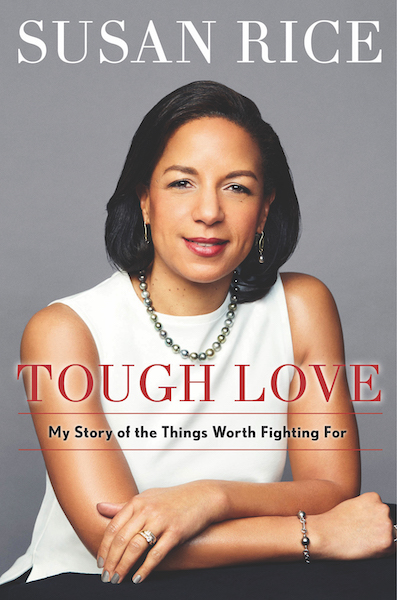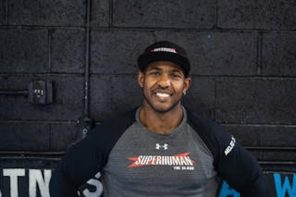When Susan Rice addresses the Westchester Women’s Summit, a virtual event taking place Sept. 9 and 10, attendees may well be looking at the next U.S. secretary of state.
Rice’s distinguished career in public service has mainly tapped into her expertise in foreign policy. Under President Barack Obama, she served as the 24th U.S. National Security adviser (2013-17) and U.S. ambassador to the United Nations (2009-13), having been confirmed by the U.S. Senate by unanimous consent.
During Bill Clinton’s second term (1996-2000), Rice was on the staff of the National Security Council and assistant secretary of state for African Affairs.
But her time in the spotlight has not been without controversy. Frank about others and herself to the point of bluntness — a quality she has shared with many of her predecessors as National Security adviser and/or U.N. ambassador, like John Bolton, Nikki Haley, Henry Kissinger, Jeanne Kirkpatrick and mentor Madeleine Albright — Rice was accused of misleading the American public about the Sept. 11, 2012 attack on the U.S. embassy in Benghazi, Libya, that killed U.S. Ambassador to Libya J. Christopher Stevens, U.S. Foreign Service Information Management Officer Sean Smith and former Navy SEALS Glen Doherty and Tyrone S. Woods. (On TV interviews following the attack, Rice used talking points from a CIA memo, the CIA being responsible for security at U.S. embassies. Ten investigations led by congressional Republicans over two years concluded that she had not intentionally misled the public about Benghazi.) Nonetheless, Republican opposition was enough to cause Rice to withdraw her name from consideration for secretary of state when Hillary Clinton resigned from the post in 2012.
“Before the days of (President Donald J.) Trump, (Secretary of Education) Betsy DeVos (Associate U.S. Supreme Court Justice) Brett Kavanaugh, and our collective acquiescence to the narrowest of confirmation margins, I believed that the secretary of state (and other senior-most positions) should not be chosen along party lines,” she writes in “Tough Love: My Story of Things Worth Fighting For” (Simon & Schuster, 2019). “It is a role too important to our national security and international leadership to be used as a political football. That is still my view, though now it may seem quaint and antiquated.”
Perhaps not so ironically, Rice’s foreign policy expertise and Benghazi were the reasons some experts predicted she would not get the nod as Democratic presidential nominee Joe Biden’s running mate — which may perfectly position her for State. The question then becomes in a Joe Biden administration, Will this time be different?
‘Civil war’ veteran
Negotiating and navigating the rough waters have been Rice specialties from an early age. She is a product of two sides of the black experience. Her maternal grandparents, Mary and David Dickson, were Jamaican émigrés — to Portland, Maine, in 1912 — whose children would distinguish themselves in World War II, academia and medicine. Rice’s mother, education policy expert Lois Dickson Rice, was known as the mother of the federal Pell Grant subsidy system. Her father, Emmett J. Rice, was the grandson of a South Carolina slave who would found a school in New Jersey. A member of the legendary Tuskegee Airmen in World War II, Emmett Rice would become a Cornell University economics professor and the second black governor of the Federal Reserve System.
Growing up in Washington, D.C., the elder child of rigorous academics — brother Emmett J. “Johnny” Rice Jr. is 20 months younger — the tomboyish Rice was expected to hold her own on current events and dinnertime debates when she wasn’t rooting for her beloved Redskins, as the Washington Football Team was known until recently. (She remains an avid tennis player.) At National Cathedral School, a private girls’ day school, she hit the trifecta as class valedictorian, student council president and athlete. It foreshadowed collegiate success — Phi Beta Kappa and a Truman Scholarship at Stanford University; a Rhodes Scholarship to New College, Oxford University and a master and doctorate of philosophy in international relations, with her dissertation on Zimbabwe and peacekeeping lauded as the United Kingdom’s most distinguished in international relations.
But the family’s academic success belied strife at home, “a civil war battleground” contested, she writes, by her divorcing parents:
“Arguably, my parents were never well-suited. My dad was not only brilliant and charming, but quick-tempered, impatient, and at least somewhat chauvinistic. My mom was beautiful, ambitious and smart, but high-strung, domineering, overly powerful but latently insecure. Ultimately, they agreed on little, except politics, some friends and their love for their children.”
Learning to serve and volley against competing parental interests no doubt was useful in charting the partisan landscape of the Obama years, in which she and the administration would be vilified for doing too little (in Syria) or too much (Libya). Even counting on successes with the ebola fight in West Africa, sanctioning Russia over its attempts to control Ukraine and the Iran nuclear deal, Rice writes, “Failure, as I discovered early, is an inevitable result of policy making. We did fail; we will fail. Our aim must be to minimize the frequency and the prices of failure, while learning from our mistakes — and hopefully not the wrong lessons.”
Bridging the divide
Post-Obama, Rice has been a distinguished visiting research fellow at American University’s School of International Service, a member of Netflix’s board of directors and a contributing opinion writer to The New York Times, in whose pages she has advocated for her hometown becoming the 51st state, a reevaluation of our relationship with China and congressional assurances of fair elections this fall.
She is also an advocate of bridging the partisan divide — which for Rice begins at home. She and her husband, former ABC News executive producer Ian O. Cameron, are the parents of son John David Rice-Cameron, former president of the Stanford College Young Republicans, and daughter Maris, as progressive as her brother is conservative.
“I believe, as always, that we must choose each other,” Rice concludes at the end of her book. “Individually and collectively, we can and must bend the arc of the moral universe — toward both justice and unity. We do not live in a zero-sum America. Your failure can never be my success. Our national creeds, of equality and “Out of Many, One” — E Pluribus Unum — must till guide us.”
The Westchester Women’s Summit — which will feature Susan Rice and former Fox News host and #MeToo pioneer Gretchen Carlson, https://www.wagmag.com/beyond-the-cliff/ along with various workshops — takes place 9 a.m. to noon Sept. 9 and 10. Admission is $175 and must be completed by Sept. 6. For more, visit web.cvent.com/event/48697d7f-e2e5-480a-be4e-6a47491faa31/websitePage:645d57e4-75eb-4769-b2c0-f201a0bfc6ce.





